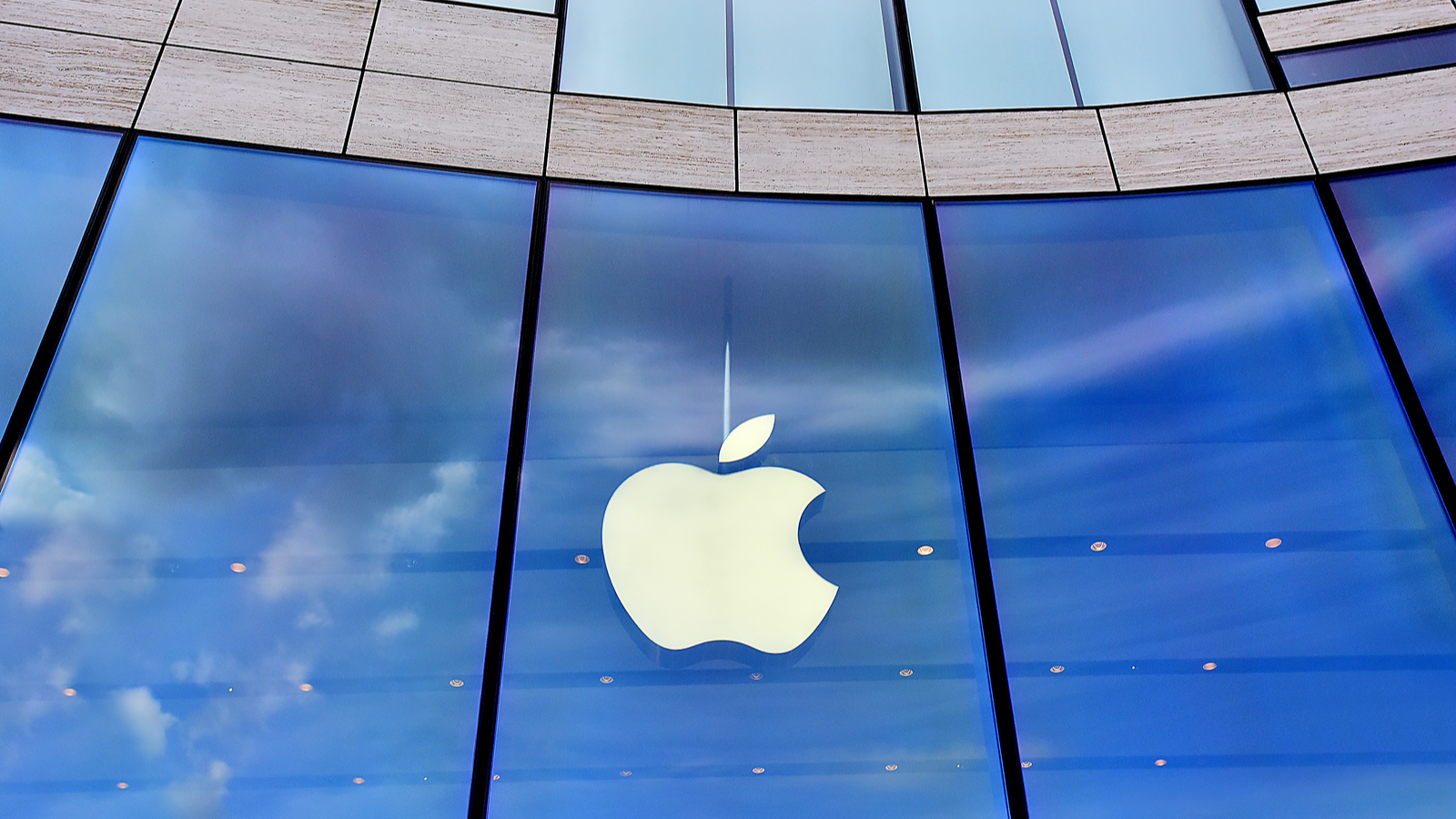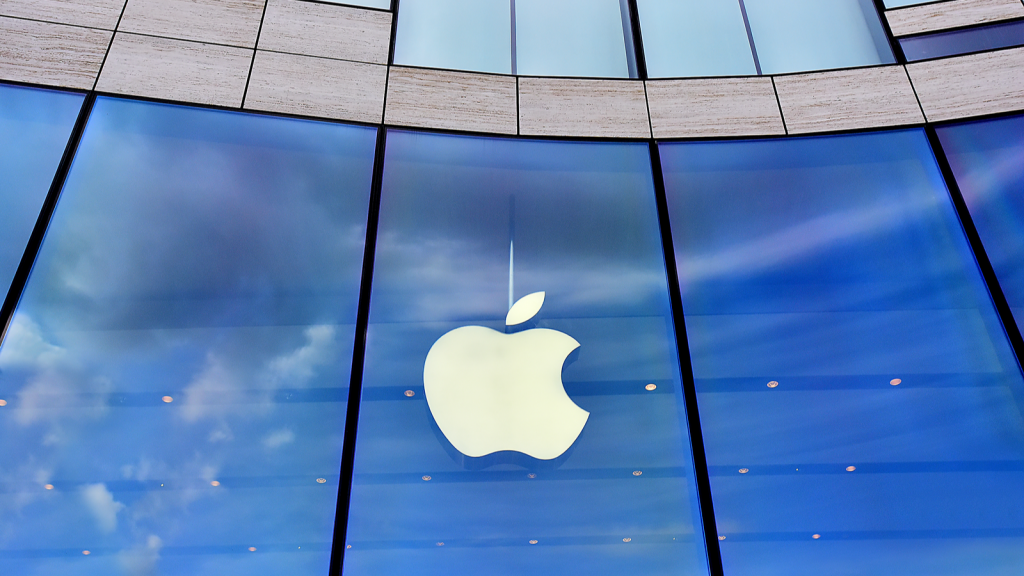- The European Union is accusing Apple (AAPL) of restricting third party payment apps on iOS in favor of Apple Pay.
- Services have become Apple’s second-largest revenue generator, so any threat could have a negative impact on AAPL stock.
- There is some risk here, but with AAPL down 15% in 2022, investors should buy Apple stock for their growth portfolio while it’s discounted.

One of the big appeals of Apple (NASDAQ:AAPL) for investors is the company’s “walled garden” strategy. When you buy AAPL stock, you’re not just reaping the benefit of all those iPhone sales. You can count on Services revenue flowing in. This covers everything from the company’s 30% cut of app sales to Apple Music subscriptions and Apple Pay transaction fees.
In the case of Apple Pay, the company takes a 0.15% cut of transactions (billed to the connected credit card or bank service). That tiny slice adds up when you multiple it by the one billion+ iPhones and Apple Watches in use. Apple doesn’t break out Apple Pay numbers, but the service was estimated to have generated $988 million in revenue in 2019, with projections it will hit $4 billion by next year.
How is that a problem? This week, the European Union announced it was going after the company over Apple Pay. Specifically, the E.U. accuses Apple of stifling competition by refusing to allow third party iOS payment apps to access the iPhone’s NFC hardware — needed for “tap and pay” functionality. This is just the latest attack on Apple’s Service revenue. Time to get worried? Or, should investors shrug it off and snap up AAPL stock that remains down 15% so far in 2022?
| Ticker | Company | Current Price |
| AAPL | Apple | $154.37 |
It’s Not Time to Panic
Apple’s Services division has been a huge success story. Let’s go back to 2010. The iPhone was gaining steam as the primary driver of AAPL stock growth and the iPad had just been released. Services related to iPhones and music (the App Store and iTunes) generated $4.9 billion in revenue. That worked out to about 7.6% of the company’s total revenue for the year.
A pretty good showing.
Fast forward to Apple’s latest quarter. The Services division generated $19.8 billion in revenue. That’s for a single quarter. Services now accounts for over 20% of Apple’s total revenue. The division is the company’s second-largest revenue generator after iPhone, nearly doubling third place Mac division sales of $10.4 billion. Clearly, Services revenue is more important than ever to APPL stock performance.
Therefore, any threat to that lucrative Services revenue should be on investors’ radar. However, it is not time to panic.
The E.U. investigation could end up with Apple being forced to allow third party, contactless payment options on the iPhone. That doesn’t mean Apple Pay stops working, just that iPhone owners will have a choice. We’ve seen a series of regulatory measures that have impacted Services in the past. Apple has had to make moves like cutting App Store fees for small developers and allowing apps to direct users to make payments online, bypassing Apple’s cut altogether.
What’s happened to Services revenue as a result? It just keeps growing. The anticipation of a regulatory move may cause a short-term drop in AAPL stock, but in the long term, the company has proven to be very resilient to these changes.
Apple Has Huge Releases in the Product Pipeline
If you need another reason to ignore the E.U.’s Apple Pay investigation, consider what’s in Apple’s product pipeline.
This year has already seen Apple reveal its first big round of new products, including the 5G iPhone SE 3 and the mighty M1 Ultra processor. Those were just the first in what is expected to be a stellar year for new Apple products. Of course there will be the iPhone 14 series and the Apple Watch Series 8. We are also looking for an all-new MacBook Air, new AirPods Pro earbuds and more. It’s shaping up to be a year of continued record quarterly revenue for the company.
Investors who are looking at AAPL stock for its long-term growth potential are more interested in the potential game-changers we know are in the company’s product pipeline. Products like an Apple car and Apple AR/VR glasses and headsets. These both have the potential to be blockbusters when they’re released. Think of what the iPhone has meant to AAPL stock performance since its release in 2007. These products that the company has been perfecting for years have the potential to repeat that cycle when they are released.
Should You Buy AAPL Stock?
Apple hasn’t been immune from the market factors that have slammed many large-cap tech stocks in 2022. APPL stock is down 15% so far this year. However it still earns a solid “B” rating in Portfolio Grader.
There is risk that APPL stock could experience further volatility this year. The E.U. investigation into Apple Pay is one of the factors in play. That being said, I’m not overly worried about the potential impact on Apple’s Services revenue. And with Apple’s strong performance so far in 2022, it’s full slate of new product releases and the potential showstoppers like the Apple car in its pipeline, AAPL stock is a safe pick for long-term growth. If you can buy Apple stock today at that discounted price, why wouldn’t you?
On the date of publication, neither Louis Navellier nor the InvestorPlace Research Staff member primarily responsible for this article held (either directly or indirectly) any positions in the securities mentioned in this article.
